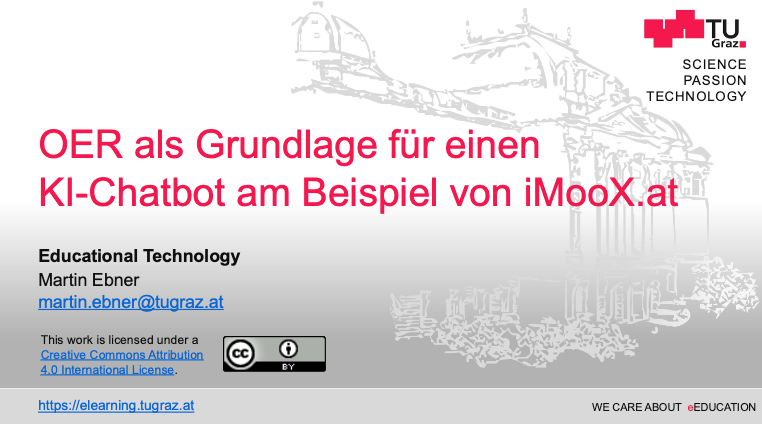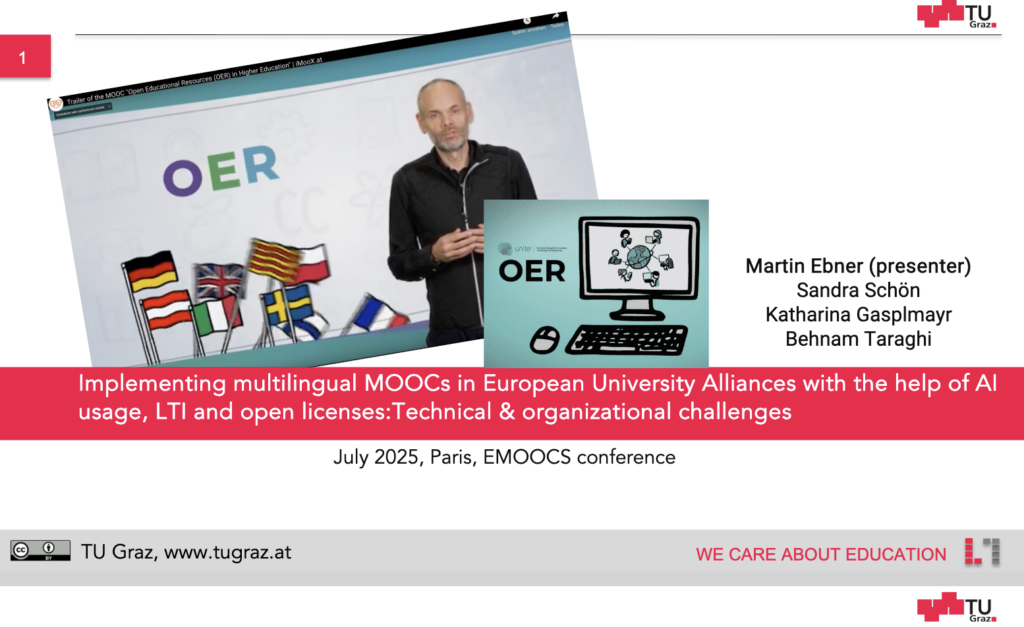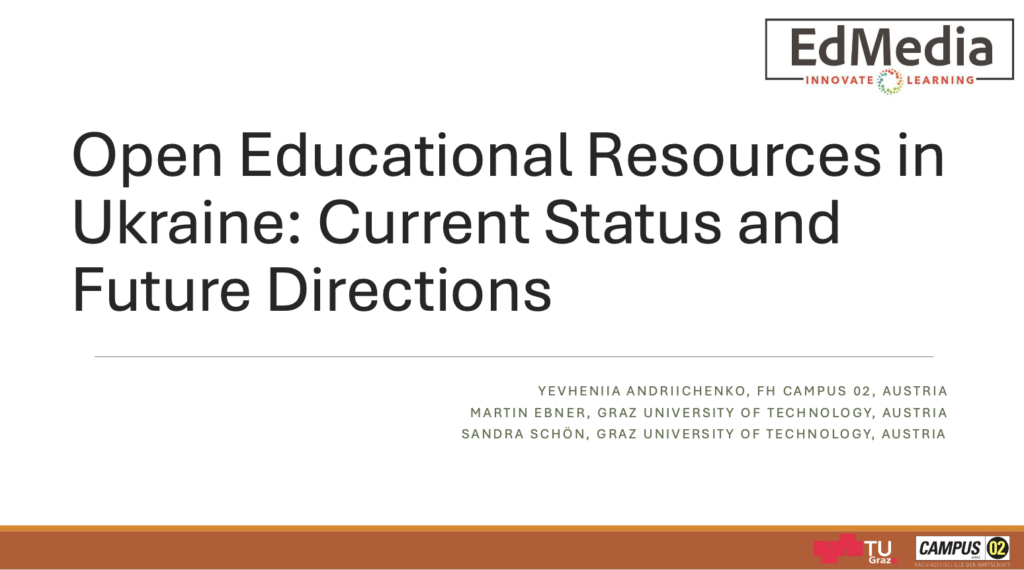Our publication about „Implementing Multilingual MOOCs in European University Alliances with the Help of AI Usage, LTI and Open Licenses: Technical and Organizational Challenges“ is now online available.
Abstract:
Producing and delivering MOOCs within European university alliances presents technical, organizational, and licensing challenges, particularly regarding multilingual accessibility, interoperability, and platform integration. This paper examines these challenges through a case study of the “Open Educational Resources in Higher Education” MOOC, developed with all partner institutions of the Unite! university alliance. The course was produced in all official alliance languages and used AI-driven tools (HeyGen) to generate multilingual instructor avatars for efficient localization. A key aspect of this MOOC was its open licensing approach. By adopting a Creative Commons (CC BY 4.0) license, the course materials were designed for reuse and dissemination across different educational contexts. To ensure broad accessibility, the MOOC was made available on the Austrian national MOOC platform iMooX.at and embedded within Unite! Metacampus, the alliance’s federated LMS. For this, Learning Tools Interoperability (LTI) for cross-platform interactions was used. Through LTI, course activities and materials on iMooX.at were linked to Metacampus, allowing users to access materials, track progress, and interact within a unified learning environment. This strategy supported federated access and engagement across institutional systems. This paper outlines the technical and organizational strategies used in developing the MOOC, discussing key challenges and providing recommendations for openly licensed, AI-supported, and LTI-integrated MOOCs within European university alliances. The findings contribute to a deeper understanding of structuring cross-institutional MOOCs that are pedagogically, technologically, and organizationally sustainable while advancing open education principles in higher education.
[full article @ publisher’s homepage]
[full article @ ResearchGate]
Reference: Ebner, M., Schön, S., Gasplmayr, K., Taraghi, B. (2026). Implementing Multilingual MOOCs in European University Alliances with the Help of AI Usage, LTI and Open Licenses: Technical and Organizational Challenges. In: Hamonic, E., Sharrock, R. (eds) Digital Education: Shaping Sustainable Lifelong Learning for All in the Era of AI. EMOOCS 2025. Lecture Notes in Computer Science, vol 15733. Springer, Cham. https://doi.org/10.1007/978-3-032-00056-9_15
This is an impactful contributions, methodological rigor, and exceptional novelty in the research field of AI in education.




